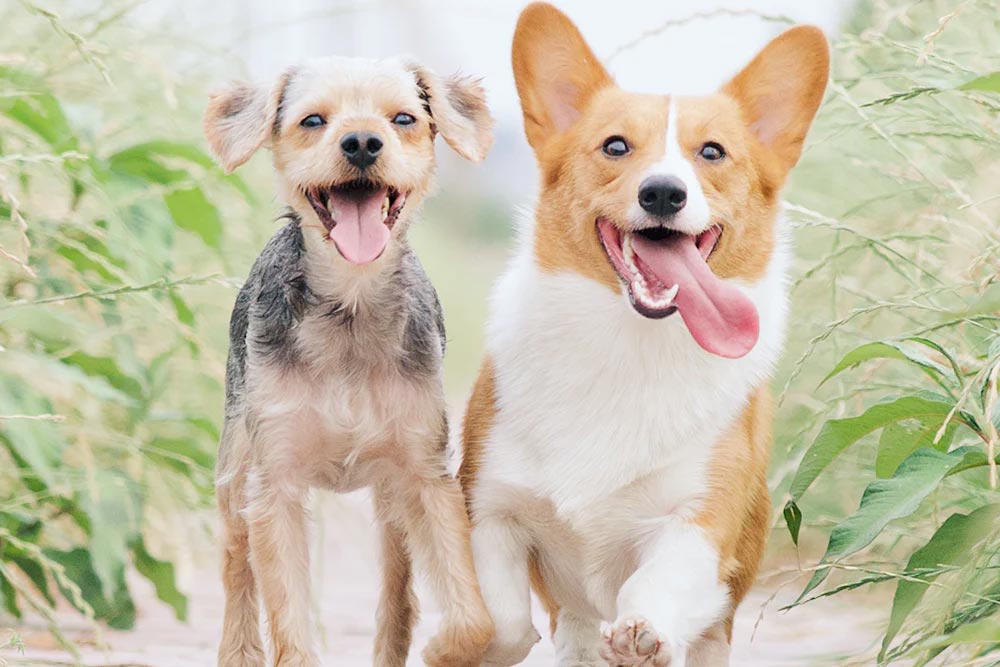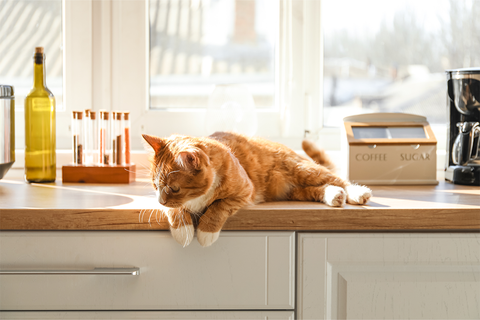
Is Your Home Pet Friendly For Spring?
While our pets are often the scene stealers in our lives, National Pet Month focuses even more on the furry stars. Safety is a core priority for all pet owners; we provide care and protection to the best of our abilities.
As we begin traversing the inevitable path to summer, changes in your behaviour may cause adverse effects for your pets.
The BBQ (and sharing food)
The weather is warm, the ground is dry, and it’s time to pull out the BBQ and enjoy the experience of cooking in the great outdoors. When wasps are not attacking you, take precautions with your animals. BBQ scraps and fatty leftovers may be delicious and safe for you and the family, but not for your pet. BBQ scraps have been linked to pancreatitis in dogs, causing severe abdominal pain or death. Even corn on the cob should be avoided as it can become internally lodged. It can cause just as many issues in cats as any food with onions, chives, or garlic can lead to gastrointestinal upset and potentially anemia.

The kitchen
With the influx of new cleaning products and kitchenware which follows spring cleaning, the heart of our home can sometimes become hazardous. Whether it be nosy snouts finding their way to chemical cleaners below the sink or sharp utensils in drawers, the kitchen can be dangerous for your pet to traverse alone. A simple child-proof lock on cabinets will prevent even the cleverest of paws from getting in.
You can, although, have a look at our pet-safe kitchen cleaners!
Pesticides
If you’re lucky enough to own a yard or garden, you probably can’t wait to beautify it. Knowing which fertilizer to use is pertinent to your pets’ health. Chemical fertilizers are popular because they have been developed to release nutrients at an optimal level for any environment. Plus, they’re very inexpensive. However, these fertilizers are harmful to the curious snout.
Look instead at organic fertilizer. There are many different kinds, such as bone meal, fish emulsion, cottonseed meal or manure. These natural (and biodegradable) fertilizers will keep your pet and garden safe.
A great DIY fertilizer is using your food compost to create a rot bin. Composting worms break down the organics and create rich, natural fertilizer. Not only do you have high-quality fertilizer, but you minimize your carbon footprint.
Epsom salts
Not as much home safety, but home safety supplies. As the winter melts away, you will find damaged or concealed areas that could house some nasties, which could irritate the paw padding.
If this happens, fill the tub with 5cm of water and add 350 grams of Epsom salts. This will allow the salt to relieve sores. It’s not recommended to let them drink the water. Epsom salt is an excellent laxative.

Natural cleaning products
You knew this was coming. Cleaning products are dangerous for humans without even (hopefully) licking the bottles. Regardless of how “green” the products state, many commonly contain chlorine, ammonia, formaldehyde, and glycol ethers. Even the lingering vapour and residues are harmful. Whether it be bathrooms, kitchens, or anything in between, they are the most dangerous products in your home.
The solution? Find products with reputable certifications or create your own cleaning product. Floor cleaners are especially important since your four-legged friends spend so much time on them. Review Our article that explains three reasons why floor cleaners aren't pet-safe. Certifications such as ECOCERT require strenuous regulation to be on the market (such as all AspenClean Cleaning Products, certified by ECOCERT and graded “A” by the EWG). These products are non-toxic, natural, and safe for your pets and family. If DIY cleaning products sound interesting, follow the instructions in our previous blog.
Click the button below to set up your home with the safest and highest quality pet-friendly products.
Enjoy your summer with your favourite furry family member while keeping them safe and healthy!